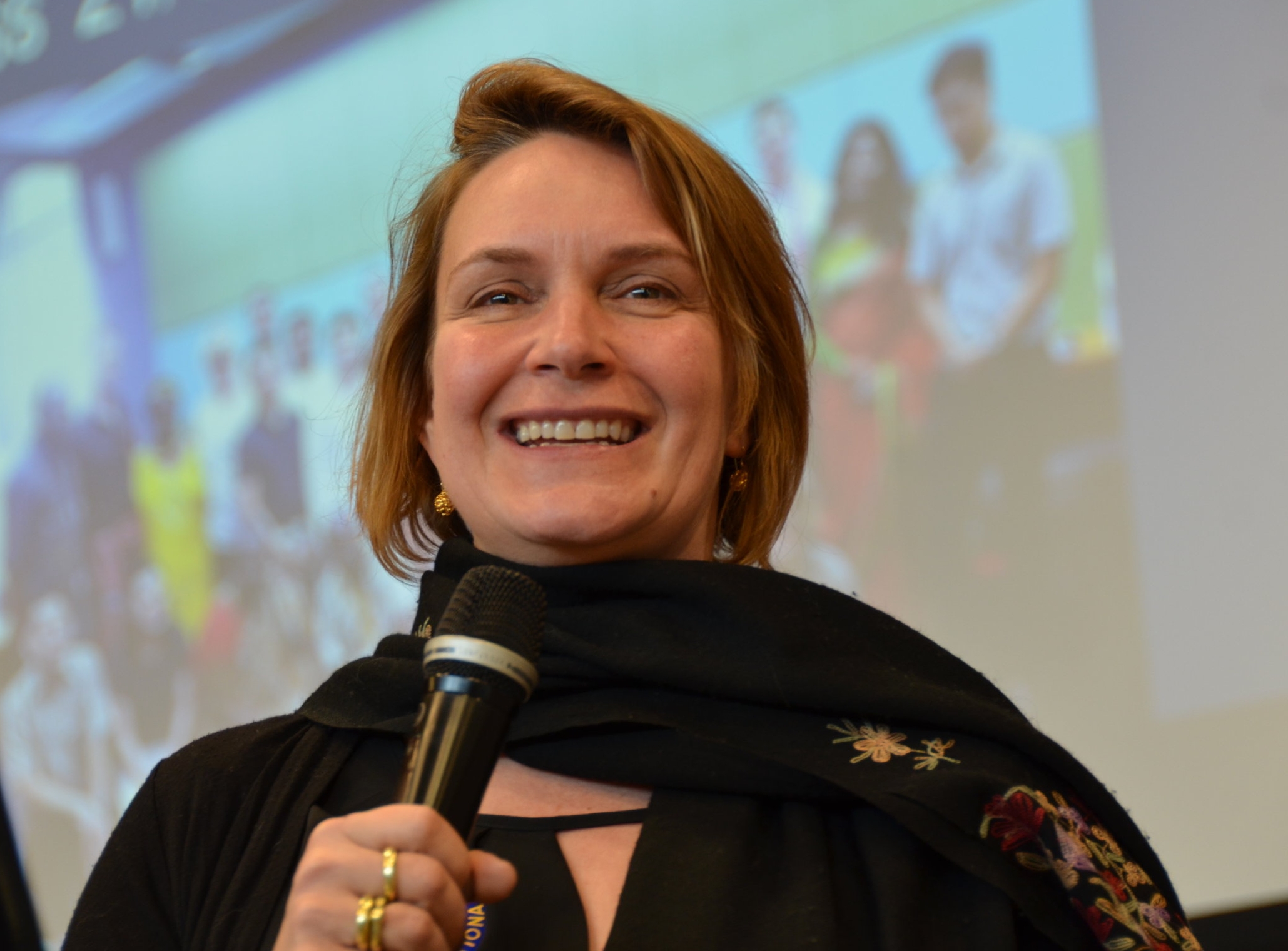The First Step
Listening as Peacebuilding
by Ana Patel
Part of doing something is listening.
We are listening. To the sun. To the stars. To the wind.
― Madeleine L’Engle, Swiftly Tilting Planet
Last year, while facilitating an experiential peacebuilding workshop, I invited the participants to try a listening exercise. Simple idea – simple activity. Participants were asked to divide into pairs, one listener and one speaker. The listeners were asked to spend three minutes listening to the speaker on climate change – keep eye contact, make encouraging gestures and sounds, but don’t interrupt. Then switch.
At the end, an older man returned to the group with tears running down his cheeks. “It has been years,” he explained in response to my concerned question, “since anyone listened to me with that kind of attention and respect.”
Circles, as opposed to rows, can be supportive of peacemaking. – Photo: Outward Bound Peacemaking
What does it mean to listen? Hillary Clinton popularized the idea of a “listening tour” as a political act – a forerunner to her 2000 Senate campaign. Stephen Covey posits listening to understand as the fifth habit of highly effective people in his international bestseller. David Isay, the founder of StoryCorps, describes listening as an act of love.
Almost every culture places value on the idea of being a good listener. It is considered the deepest form of respect for another. And yet listening is one of the most difficult practices that we can cultivate. And in a world dominated by constant electronic distraction, political, ideological and economic divides, and frantic daily lives, the art of listening is often lost.
As the executive director of Outward Bound Peacebuilding, an international organization using the power of experiential education in the outdoors to bring people from different sides of conflict together, I have witnessed and participated in numerous transformative experiences that started with listening. I have come to believe that listening is a critical skill in peacebuilding – a skill that can be taught and practiced, but a skill that does not come easily to most of us.
Hearing without Listening is Like Seeing without Observing
Most of us hear, but we do not listen. Listening is not passive. It is a thinking function. It requires attention, eye contact, and analytical skills. In our programs and workshops at Outward Bound Peacebuilding, we explore the idea of active listening as a way of responding to another person that improves mutual understanding. In July, for example, we will deliver our second program focused on interfaith dialogue.
After learning how to paddle a canoe, fit a backpack, and cook outdoors, participants will also be challenged to practice listening to one another in response to a daily question. How do you connect to faith in your daily life? Who is in your faith community? Why engage in interfaith dialogue? At the end of each day on an Outward Bound Peacebuilding trip, we reflect on the experience, providing feedback to each other on our developing skills, as well as sharing what we learned from each other. We dedicate time to listening.
Four Entry Points
Listening carefully brings people together. – Photo: Outward Bound Peacemaking
On Outward Bound Peacebuilding programs, we seek to listen across four entry points of peacebuilding – 1) the self, 2) the self and other, 3) the self and community and 4) the self and the environment. All peacebuilding starts with a deeper understanding of how one’s own experience shapes our perspectives. We introduce contemplative practice and meditation skills to open up the idea of listening to one’s self. Listening to others and to the community is explored through activities such as paired sharing, facilitated dialogue, and daily opportunities for group reflection. But the fourth entry point often provides a challenge: how do we listen to the environment?
“I’m listening to the sounds of the forest and imagining the music concert where I will perform in a few weeks,” wrote Noa Vox, an alum of Outward Bound Peacebuilding’s Palestinian-Israeli Emerging Leaders Program. “Should I tell the audience about my night alone in the forest? Should I tell them that the sounds here are like a music to my ears?”
A solo experience is an integral part of an Outward Bound Peacebuilding expedition. This often means spending a period of time, often a night, alone in a wilderness setting. More often than not, our program is the first time a person has spent any significant time alone in a natural setting. We ask them to listen – to the rumblings of an incoming thunderstorm, to the forest shaking in the wind, to the scurrying of small creatures in the underbrush. If we are only hearing these things, we are not paying attention. Spending quiet time in natural settings is also an opportunity for our participants to learn to listen and in turn to be open to the wild world around them. What they hear often echoes for a lifetime.
We need to revive the art of listening. The consequences of not listening to ourselves, to each other and to the environment around us are too great.
This reflection was first posted by the Interfaith Center of New York, April 18, 2017.
Header Photo: Outward Bound Peacebuilding




